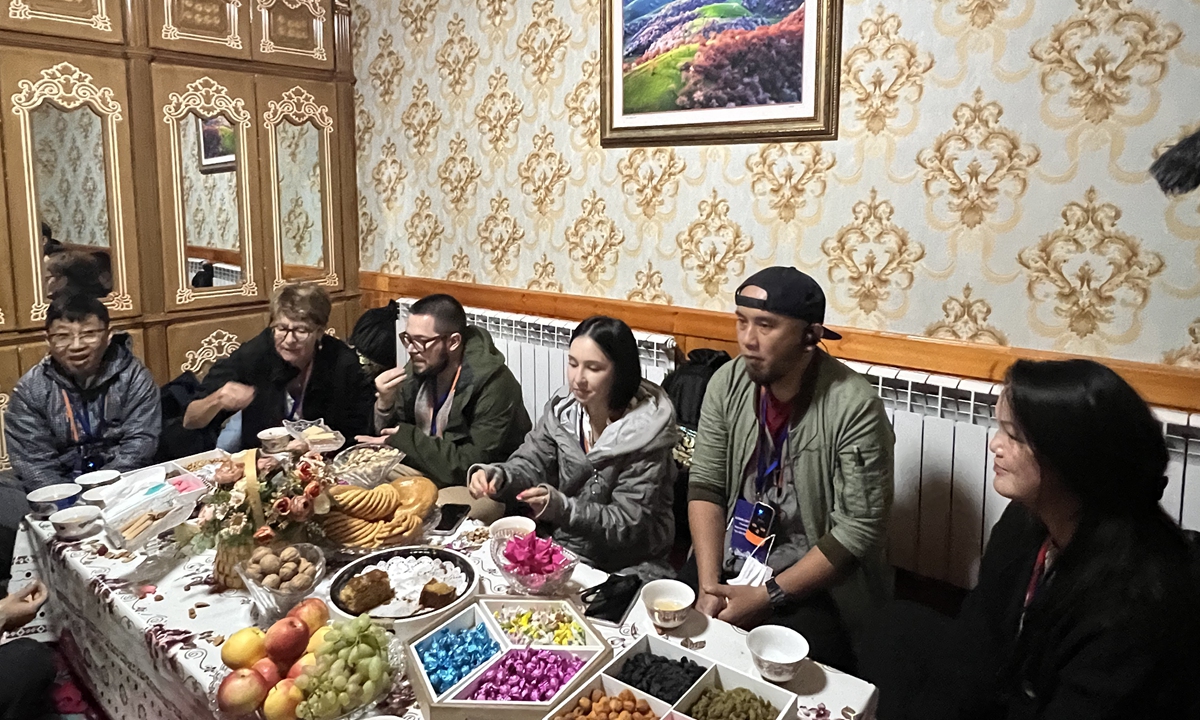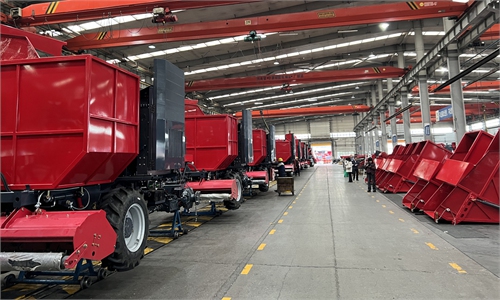Foreign media corps visiting Xinjiang, getting to know region’s rapid development, ‘Silk Road Economic Belt’

Foreign journalists at the old town Kazanqi tourists attraction for folk customs in Yining,Northwest China's Xinjiang Uygur Autonomous Region on September 15, 2023 Photo: Li Xuanmin/GT
More than 20 foreign journalists from 14 countries have been participating in an eight-day media event "Approaching the Core Area on 'the Silk Road Economic Belt,' visiting a number of cities in Northwest China's Xinjiang Uygur Autonomous Region from Wednesday.
The groups of reporters are from 17 overseas media organizations, including those based in Australia, Japan, Kyrgyzstan, Netherlands, Russia, Saudi Arabic, Thailand and the US.
The foreign reporters have visited and conducted interviews in Urumqi, Turpan, Yining in the Yili Kazak Autonomous Prefecture and Kashi, learning the history and traditions of Xinjiang as well as the region's pivotal role in the ancient Silk Road.
It is expected after the trip, they will develop a comprehensive understanding of the region's development in all aspects.
A number of foreign reporters have shown great interest in knowing how Xinjiang trades with their home countries and deepens economic cooperation under the Belt and Road Initiative (BRI).
An editor from a Russian news agency named Maxim told the Global Times that the most important thing he learned from the trip is the economic cooperation between Xinjiang and Russia. "There are plenty of cooperation projects… What's more striking is that it's not only about exporting goods made in Xinjiang to Russia, but also about importing goods from Russia," Maxim said, exemplified by the Russian chocolate sold at the China- Kazakhstan International Border Cooperation Center in Khorgos.
Supachai, a Thai journalist, is interested in how trading company in Khorgos exported Xinjiang fruits such as apples and grapes to Thailand.
With regards to the trip in Xinjiang, he told the Global Times that he was impressed by the ethnic unity in the region. "As the northeastern part of Thailand lacks water, I'm also interested in Xinjiang's Karez well, an ancient project that provides the region's inhabitants with water for drinking and irrigation," he said.
A European journalist told the Global Times that it was the first time she visited a live-streaming room and she was impressed by the energy the host showed. "It's a new thing in the West, and it could be an [effective] way for local villagers to promote their produce and reach different areas," she said.
Xinjiang is located in Northwest China and the hinterland of the Eurasian Continent. It was an important node of the ancient Silk Road, and is now a core area for the construction of the Silk Road Economic Belt, and the forefront of China's westward opening-up.
Last year, the region recorded GDP growth of 3.2 percent year-on-year to reach 1.77 trillion yuan.
Global Times


